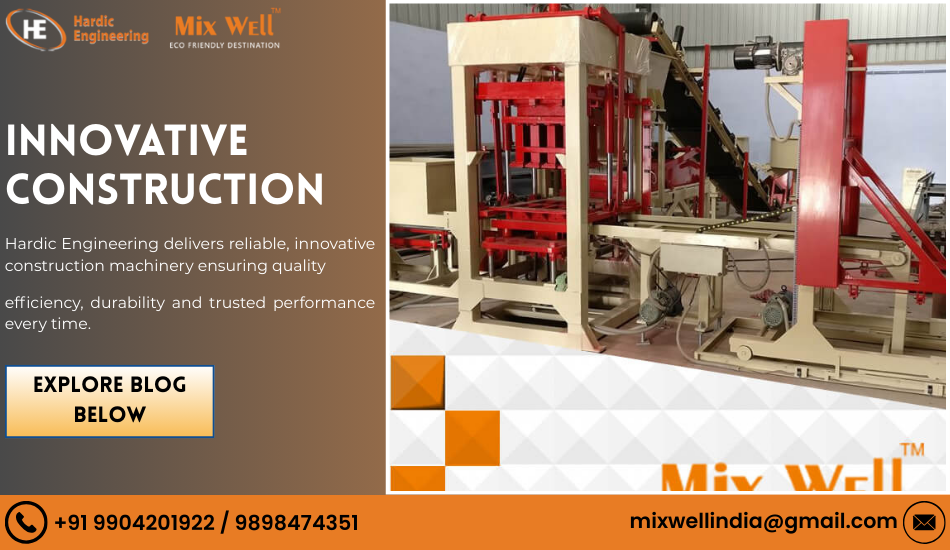
As a leading fly ash brick plant manufacturer in India, our company specializes in providing high-quality, durable, and fully automated machinery for producing fly ash bricks. Fly ash bricks are an eco-friendly alternative to traditional clay bricks, made from a combination of fly ash (a byproduct of thermal power plants), sand, lime, and gypsum. Our state-of-the-art manufacturing plants are designed to meet the growing demand for sustainable building materials while ensuring high productivity and energy efficiency. We offer a comprehensive range of machines, from semi-automatic to fully-automatic setups, catering to the needs of small-scale entrepreneurs and large industrial projects alike. By choosing our fly ash brick plant, you are investing in a reliable solution that not only contributes to environmental preservation but also ensures a profitable and scalable business. Our expertise lies in delivering turnkey projects, providing everything from equipment installation to operator training and after-sales support.
The working principle of our fly ash brick plant revolves around a highly efficient and automated process that ensures uniform and high-strength bricks. The process begins with the raw materials, including fly ash, sand, lime, and gypsum, being fed into a pan mixer or a ribbon blender. Here, they are thoroughly mixed to form a homogeneous mixture. A precise amount of water is added to achieve the perfect consistency, which is critical for the brick's quality. This controlled mixing ensures that the final product has consistent strength and density. Once the mixing is complete, the prepared material is transported to the brick-making machine. Our hydraulic press machines are capable of applying immense pressure, compacting the mixture into solid, well-formed bricks. This high-pressure compaction is what gives fly ash bricks their superior strength and smooth finish.
Following the shaping process, the green bricks are transferred to a stacking area for curing. Curing is a crucial step that allows the bricks to gain their final strength. This can be done through a water curing process, where bricks are sprayed with water over a period of time, or through a steam curing process, which significantly reduces the curing time. Our plants are equipped to handle both methods efficiently. After the curing period, the bricks are ready for stacking and dispatch. The entire process is designed to minimize manual labor, reduce production costs, and maximize output, making it an ideal investment for modern construction material production. Our focus on automation ensures that you can achieve high-volume production with minimal operational hassle.
When looking for a fly ash brick plant, it's essential to partner with a trusted manufacturer who provides not only quality machinery but also excellent service. Our company, Mix Wellbrick Machine, is a prominent manufacturer and supplier in India, with a strong reputation for producing reliable and high-performance fly ash brick plants. We have successfully installed numerous plants across the country, helping clients establish profitable and sustainable businesses. Our team of experts provides end-to-end solutions, from custom plant design to on-site installation and operator training. We use top-grade materials and advanced technology to build our machines, ensuring they deliver consistent results and stand the test of time. Choosing us means you get a complete package of quality, technology, and support, making your investment a seamless and rewarding experience.
Your Partner in Sustainable Building Material Manufacturing
Office Address
C-1, 77/1, Kaka Estate, Ambicanagar Road, Nr. National Plastic, Odhav, Ahmedabad – 382415, Gujarat, India.
Factroy Address
24, Shreeji Estate Near Sankalp Estate, Bakrol Cir, Ahmedabad-382430, Gujarat, India
mixwellindia@gmail.com
hardicengineering@gmail.com
+91 99042 01922
+91 98984 74351
Also Send Mail
© Hardic Engineering . All Rights Reserved.
